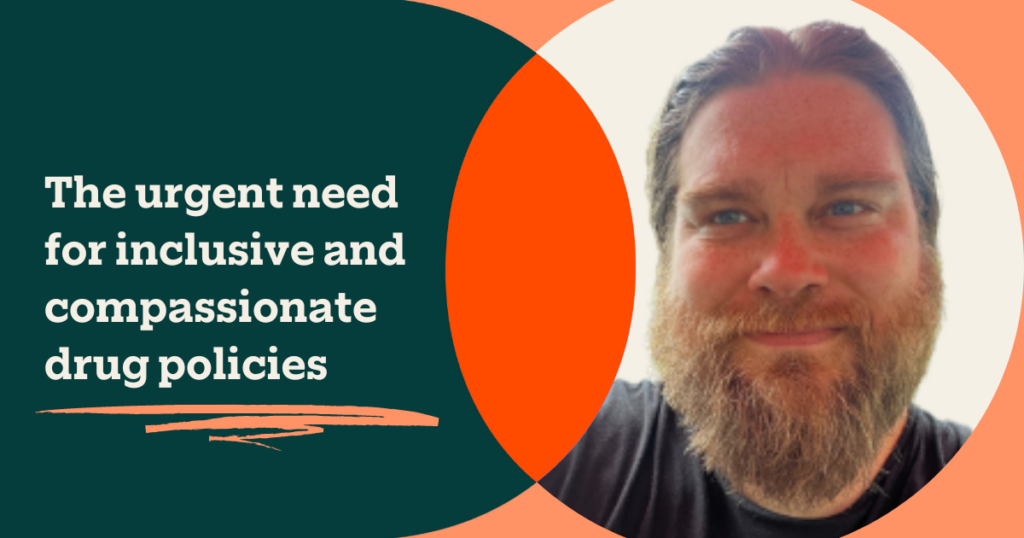From Stigma to Support: A Call for Compassion in Wisconsin’s Drug Policy

Throughout the past two decades, deaths due to drug overdose have skyrocketed and remained unacceptably high in Wisconsin. Treatment providers, government agencies, human service organizations, medical providers and groups representing those who’ve lost loved ones to overdose have come together to voice their opinions for addressing the “overdose crisis” in various forums. Absent from the conversation are the ones most likely to experience overdose, namely, people who are using drugs. Organizations like PULSE, Wisconsin’s first drug users’ union, are working to counter the narrative that people who use drugs are all nihilistic addicts who will do anything in order to get their next fix. People who use drugs, and those with recent, relevant drug use experience, have the most valuable input. In order to make lasting change they must be engaged and welcomed into these important discussions in order to overcome Wisconsin’s overdose crisis.
In 2023, western Wisconsin's La Crosse County saw a distressing surge in overdose deaths, recording 55 suspected cases for the year, surpassing the previous record of 40 deaths set in 2020. Alarmingly, 72% of these fatalities involved fentanyl, highlighting the severity of the opioid crisis in the region. This trend extends statewide, with Wisconsin reporting a total of 1,794 overdose deaths in 2023, according to CDC data. Despite approximately 845 individuals enrolled in substance use disorder treatment programs within Wisconsin's prison system, over 11,000 people remain on waiting lists for these critical services.
Illicitly manufactured fentanyl’s presence in Wisconsin’s drug supply has exacerbated overdose deaths. However, it is a danger only to people who use drugs, not to first responders or people in proximity to the individual. Unfortunately, political propaganda and sensationalism have convinced many people, including lawmakers, that touching fentanyl or even being near it can cause a person to become affected or even die, despite overwhelming evidence that this is impossible. This hysteria generates misinformation that may make first responders hesitant to do their job. It also fuels hatred and fear of people that use drugs. This stigma only isolates people who are struggling with problematic drug use from their communities and keeps them from accessing essential services for recovery, leaving them more susceptible to incidents that involve law enforcement.
A Pew Research study suggests that increasing imprisonment has no effect on decreasing drug use or overdose deaths. However, despite politicians and law enforcement officials' regular utterances of “we cannot arrest our way out of this problem,” it does not stop them from trying. Recent changes in Wisconsin’s drug-induced homicide (DIH) law, known also as the Len Bias Law, increases the maximum penalty for someone charged with providing drugs to someone who dies from the drugs to 60 years. Advocates for the law state that the goal is to target high-level traffickers and “kingpin” drug dealers. Yet, as the law is written, and as has historically happened, the opposite occurs. Friends, family members or romantic partners are often the ones charged and sentenced under DIH. Often because they were the last person who handled the deceased individual’s drugs, even when they were using the same drugs and simply managed not to die.
Heavy-handed criminalization is worsened by a weak Good Samaritan law that offers “limited immunity” from civil liability and drug charges to an “aider” acting in good faith to save a life during an overdose. An “aider” in this context must contact EMS, law enforcement, or a 911 operator. This is flimsy protection at best, and will likely discourage people from reaching out for help during an overdose emergency. We need to think of an overdose as an urgent medical emergency, not as an opportunity to punish someone for using drugs. We must empower people who use drugs and those that love them to support and aid one another, and encourage them to reach out for help when it is necessary. No one should be afraid of punishment for doing the right thing.
Wisconsin must recognize the failures and harms of past decisions and take decisive action to implement compassionate policies that address the root causes of addiction and provide support for those in need. Our lawmakers need to stop policies based on punishment and embrace policies and systems that are human-centered. By promoting harm reduction programs and services, implementing deflection training within our law enforcement, and supporting those who struggle with substance use disorder, we can reduce incarceration rates while improving community health and safety.
Mat Hazelberg is a drug user activist and harm reductionist. He has worked primarily with people who inject drugs in providing health services since 2006. In 2023, he co-founded PULSE as a platform to involve and amplify the voices of Wisconsinites who use drugs in discussions involving them and the issues that surround them. He lives in Milwaukee.
